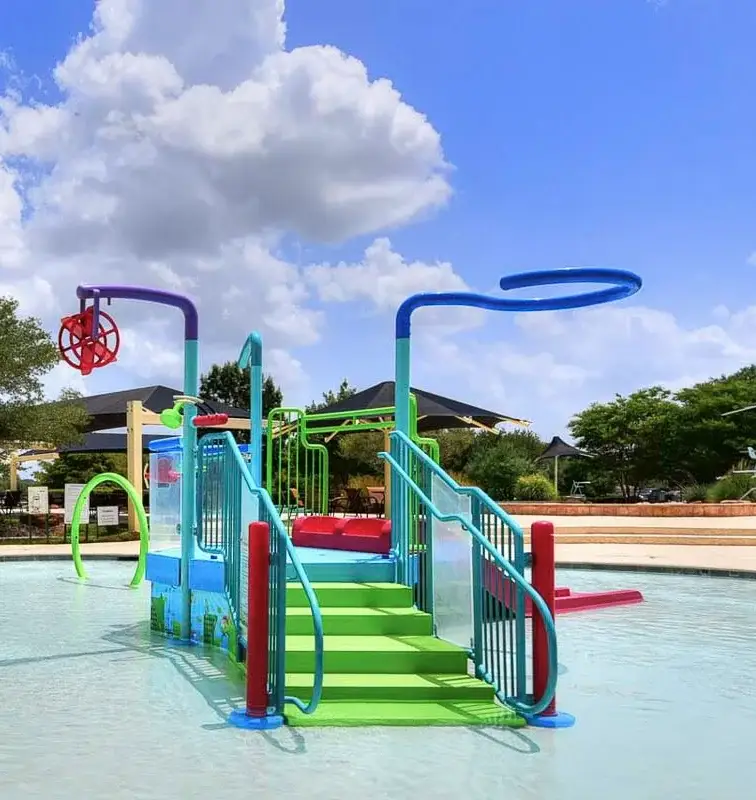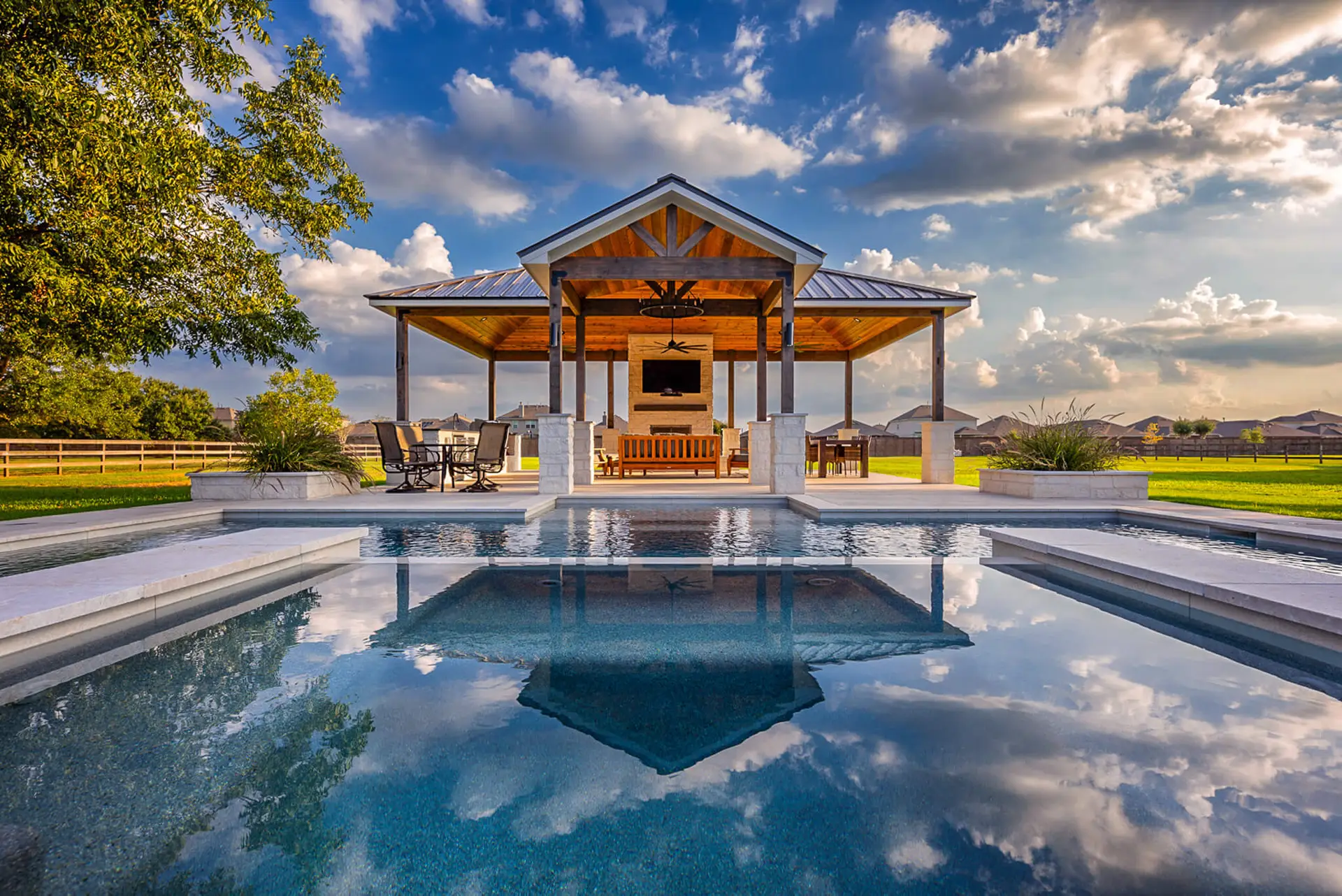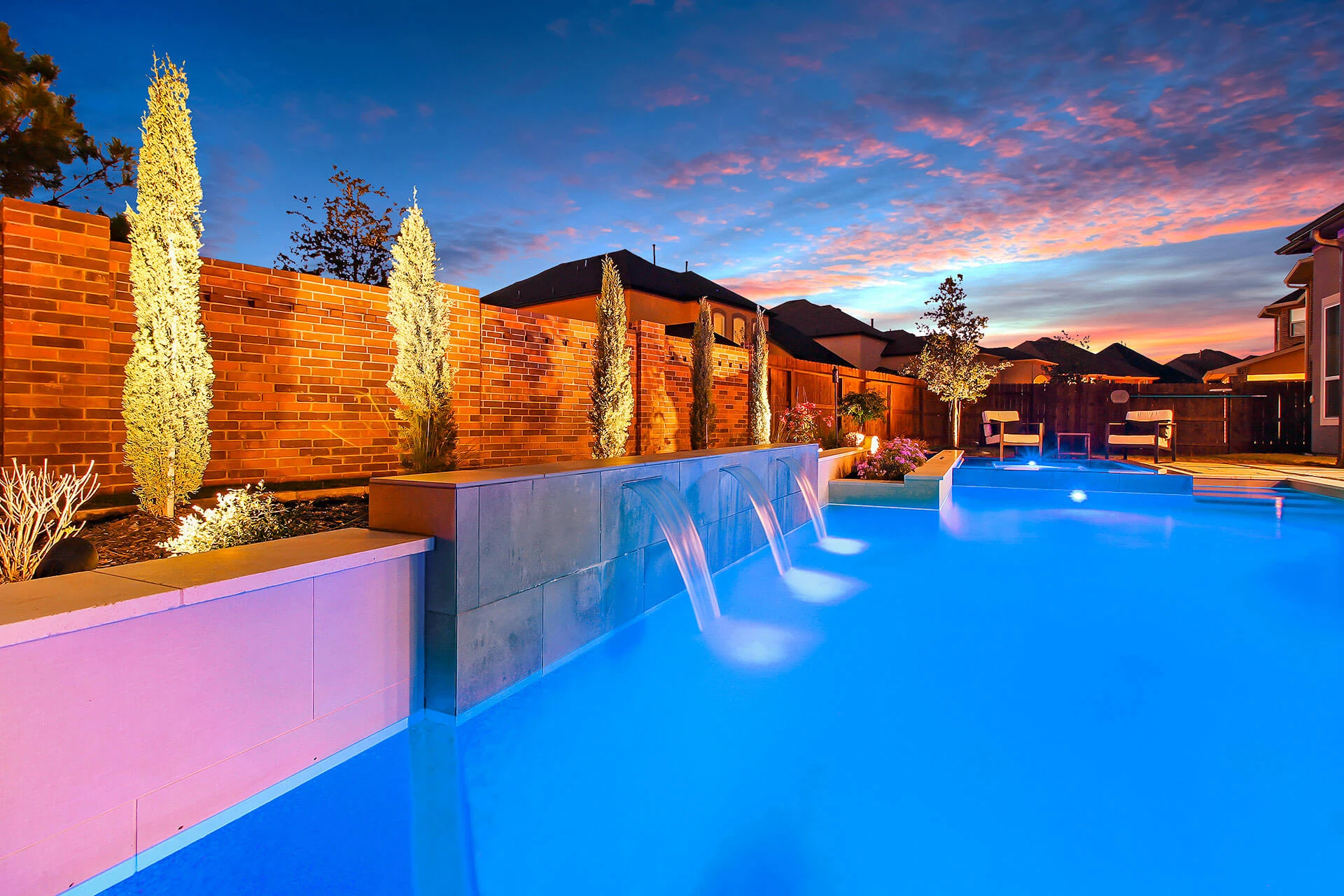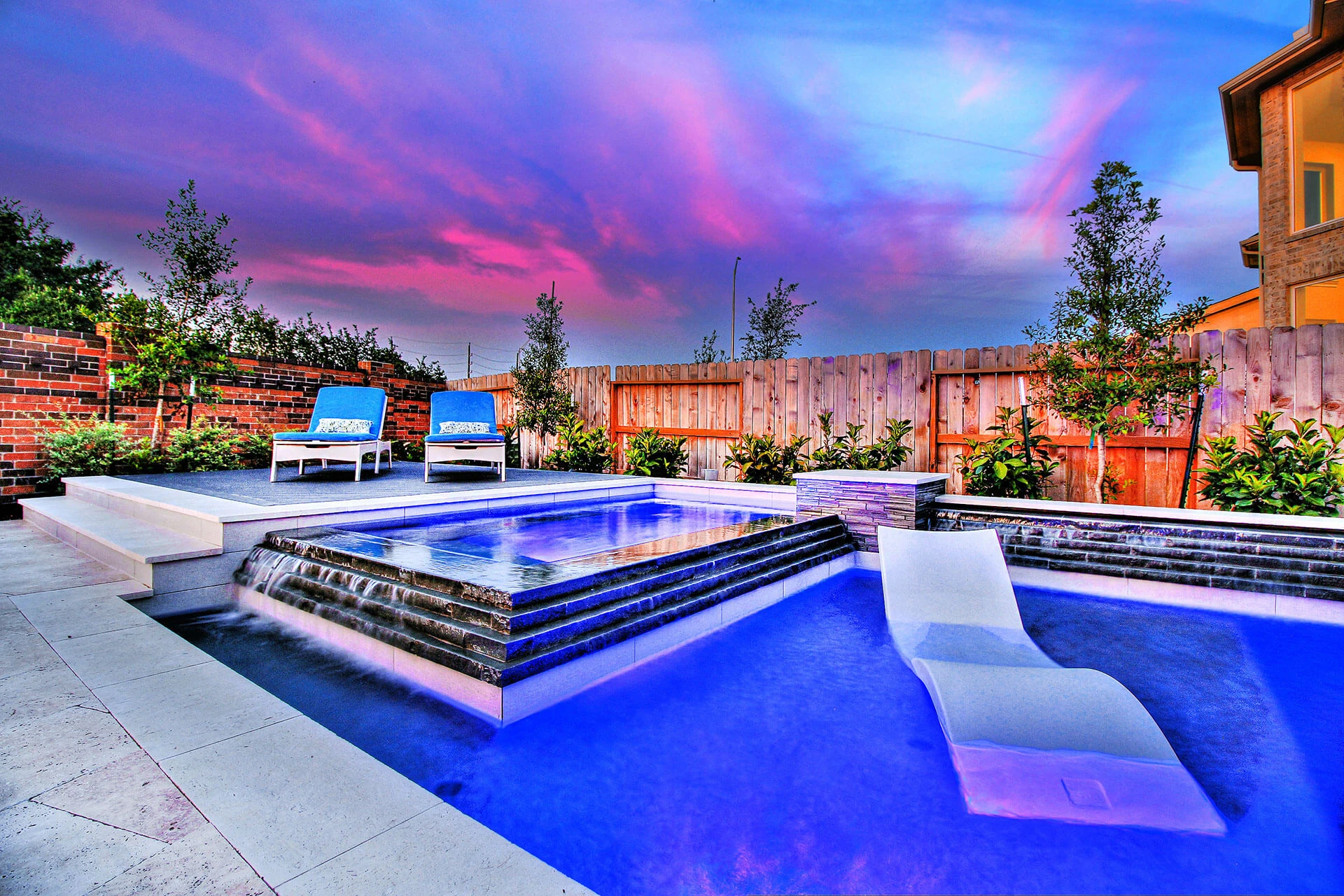Greetings, Katy pool owners! Heavy rains are a common occurrence in our region, and while they can bring much-needed relief from the summer heat, they can also pose a challenge for your swimming pool. At Sunset Pools Inc., we understand how important it is to keep your pool in pristine condition, rain or shine. Here’s a comprehensive guide on what to do after heavy rains to ensure your pool remains a safe and enjoyable haven.
1: Assess and Remove Debris
After heavy rain, the first step is to check for any debris that may have fallen into your pool. Leaves, branches, and other debris can affect your pool’s water quality and clog the filtration system. Use a skimmer net to remove these items from the surface and clean out the skimmer baskets.
2: Check the Water Level
Heavy rain can cause the water level in your pool to rise above the optimal range. If the water level is too high, the skimmer’s efficiency and the overall filtration process can be affected. Use a submersible pump or a siphon hose to bring the water level back to the midpoint of your skimmer.
3: Drain Your Pool with an Autofill System
If your pool has an autofill system, managing the water level can be a bit different. Here’s how to handle it:
- Turn Off the Autofill System: Locate the autofill valve and turn it off. This will prevent additional water from entering the pool.
- Use a Submersible Pump: Place a submersible pump in the pool and connect it to a hose that drains to a suitable area away from your pool and home. Ensure the pump is securely positioned and start draining the excess water.
- Monitor the Water Level: Keep a close eye on the water level as you drain it. Aim to bring it back to the midpoint of your skimmer.
- Restart the Autofill System: Once the water level is back to normal, turn the autofill system back on and ensure it is functioning correctly.
4: Test and Balance the Water Chemistry
Rainwater can significantly alter your pool’s water chemistry. Test the water for pH, alkalinity, and chlorine levels using a reliable test kit. Here are some general guidelines:
- pH: Ideal range is 7.4 to 7.6
- Alkalinity: Ideal range is 80 to 120 ppm
- Chlorine: Ideal range is 1 to 3 ppm
Adjust the levels as necessary by adding the appropriate chemicals. Balancing the water chemistry is crucial to prevent algae growth and ensure a safe swimming environment.
5: Shock the Pool
Heavy rain can introduce contaminants and dilute the chlorine levels in your pool. Shocking the pool involves adding a high dose of chlorine to kill bacteria, algae, and other organic contaminants. Follow the instructions on the shock product and run the pool pump for at least 8 hours to ensure proper circulation.
6: Clean the Filters
Your pool’s filters work overtime after a storm to remove impurities from the water. Check and clean your pool filters according to the manufacturer’s instructions. For cartridge filters, remove and rinse them thoroughly. For sand or DE filters, backwash to remove any trapped debris.
7: Inspect Pool Equipment
Heavy rains can also affect your pool equipment. Inspect your pump, heater, and other equipment for any signs of damage or waterlogging. Ensure all electrical components are dry and functioning properly. If you notice any issues, contact a professional for a thorough inspection and repair.
8: Run the Pump and Circulate the Water
After completing the above steps, run your pool pump for 24 to 48 hours to circulate the water and distribute the chemicals evenly. This helps restore your pool’s water clarity and filters all contaminants out.
By following these steps, you can keep your pool in top condition even after heavy rains. Regular maintenance is key to enjoying a clean and safe swimming environment.
Stay safe and happy swimming!






